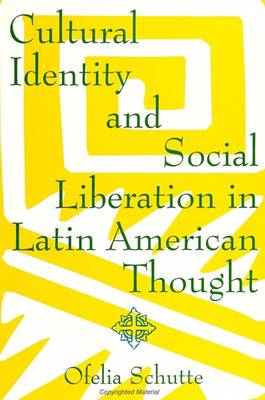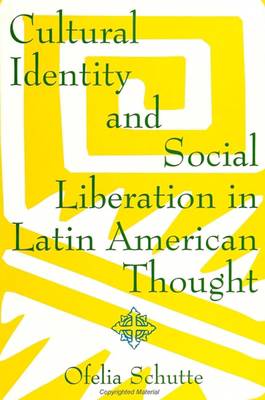
- Afhalen na 1 uur in een winkel met voorraad
- Gratis thuislevering in België vanaf € 30
- Ruim aanbod met 7 miljoen producten
- Afhalen na 1 uur in een winkel met voorraad
- Gratis thuislevering in België vanaf € 30
- Ruim aanbod met 7 miljoen producten
Cultural Identity and Social Liberation in Latin American Thought
Ofelia SchutteOmschrijving
This book defines the relationship between liberation and cultural identity in the Latin American social reality--from a historically rooted, critical philosophy. Schutte explores the connections between the diverse political and intellectual movements for social liberation in Latin America since 1920. She analyzes the variety of attempts to give meaning to the complex and conflictive nature of Latin America's social reality, critiquing the work of Jose Carlos Mariategui, Samuel Ramos and Leopoldo Zea's early work, Gustavo Gutierrez, and Paulo Freire, among others.
Schutte's approach is philosophical with a distinctly interdisciplinary context. Her discussion of feminism brings the question of women's equality to the forefront of discussions on Latin American social thought. Concluding with the contemporary ethical and political implications, Schutte argues that liberation-oriented theories are sustained yet heterogeneous attempts to deal with Latin America's difficult economic, social, and political problems.
Specificaties
Betrokkenen
- Auteur(s):
- Uitgeverij:
Inhoud
- Aantal bladzijden:
- 324
- Taal:
- Engels
- Reeks:
Eigenschappen
- Productcode (EAN):
- 9780791413180
- Verschijningsdatum:
- 18/03/1993
- Uitvoering:
- Paperback
- Formaat:
- Trade paperback (VS)
- Afmetingen:
- 152 mm x 229 mm
- Gewicht:
- 453 g

Alleen bij Standaard Boekhandel
Beoordelingen
We publiceren alleen reviews die voldoen aan de voorwaarden voor reviews. Bekijk onze voorwaarden voor reviews.











